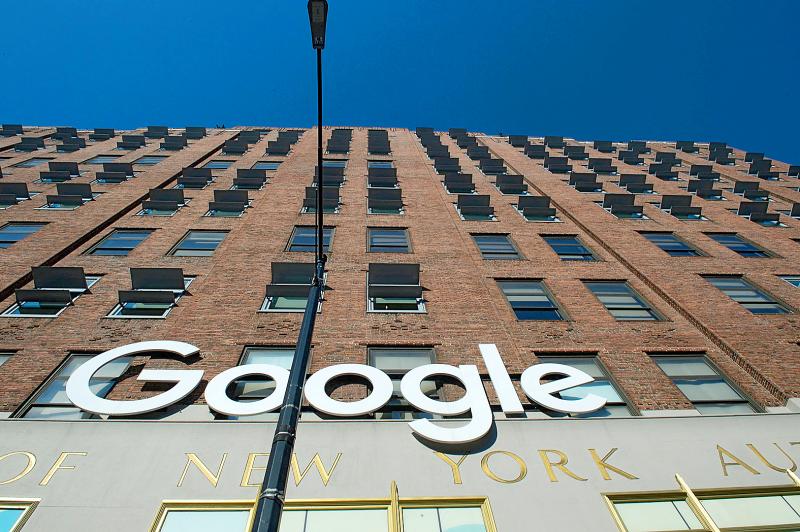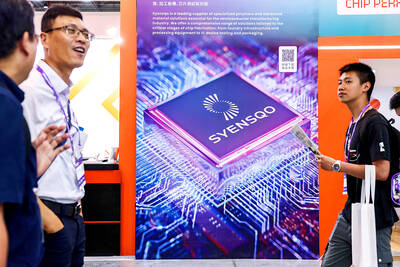Alphabet Inc’s Google on Tuesday announced plans to buy a New York office building for US$2.1 billion, confirming its push into the US’ largest city despite the COVID-19 teleworking trend.
This is the largest real-estate purchase in the US for an office building since the beginning of the global spread of COVID-19, the Wall Street Journal quoted Real Capital Analytics as saying.
Google already rents the premises in Manhattan, which are located on the site of a former railroad terminal in the Hudson Square neighborhood.

Photo: AFP
The Silicon Valley giant envisions a campus with a total surface area of 160,000m2 by mid-2023 that would serve as its New York headquarters for sales and partnerships.
The final site is to be spread over three buildings between Hudson Street and Washington Street, with construction of two of them already completed.
The firm, whose headquarters are in Mountain View, California, has made other billion-dollar purchases in New York, including the US$2.4 billion it plunked down on the Chelsea Market building.
“Google has been fortunate to call New York City home for more than 20 years, during which time we have grown to 12,000 employees,” Alphabet chief financial officer Ruth Porat said in a statement.

SEMICONDUCTOR SERVICES: A company executive said that Taiwanese firms must think about how to participate in global supply chains and lift their competitiveness Taiwan Semiconductor Manufacturing Co (TSMC, 台積電) yesterday said it expects to launch its first multifunctional service center in Pingtung County in the middle of 2027, in a bid to foster a resilient high-tech facility construction ecosystem. TSMC broached the idea of creating a center two or three years ago when it started building new manufacturing capacity in the US and Japan, the company said. The center, dubbed an “ecosystem park,” would assist local manufacturing facility construction partners to upgrade their capabilities and secure more deals from other global chipmakers such as Intel Corp, Micron Technology Inc and Infineon Technologies AG, TSMC said. It

EXPORT GROWTH: The AI boom has shortened chip cycles to just one year, putting pressure on chipmakers to accelerate development and expand packaging capacity Developing a localized supply chain for advanced packaging equipment is critical for keeping pace with customers’ increasingly shrinking time-to-market cycles for new artificial intelligence (AI) chips, Taiwan Semiconductor Manufacturing Co (TSMC, 台積電) said yesterday. Spurred on by the AI revolution, customers are accelerating product upgrades to nearly every year, compared with the two to three-year development cadence in the past, TSMC vice president of advanced packaging technology and service Jun He (何軍) said at a 3D IC Global Summit organized by SEMI in Taipei. These shortened cycles put heavy pressure on chipmakers, as the entire process — from chip design to mass

People walk past advertising for a Syensqo chip at the Semicon Taiwan exhibition in Taipei yesterday.

NO BREAKTHROUGH? More substantial ‘deliverables,’ such as tariff reductions, would likely be saved for a meeting between Trump and Xi later this year, a trade expert said China launched two probes targeting the US semiconductor sector on Saturday ahead of talks between the two nations in Spain this week on trade, national security and the ownership of social media platform TikTok. China’s Ministry of Commerce announced an anti-dumping investigation into certain analog integrated circuits (ICs) imported from the US. The investigation is to target some commodity interface ICs and gate driver ICs, which are commonly made by US companies such as Texas Instruments Inc and ON Semiconductor Corp. The ministry also announced an anti-discrimination probe into US measures against China’s chip sector. US measures such as export curbs and tariffs